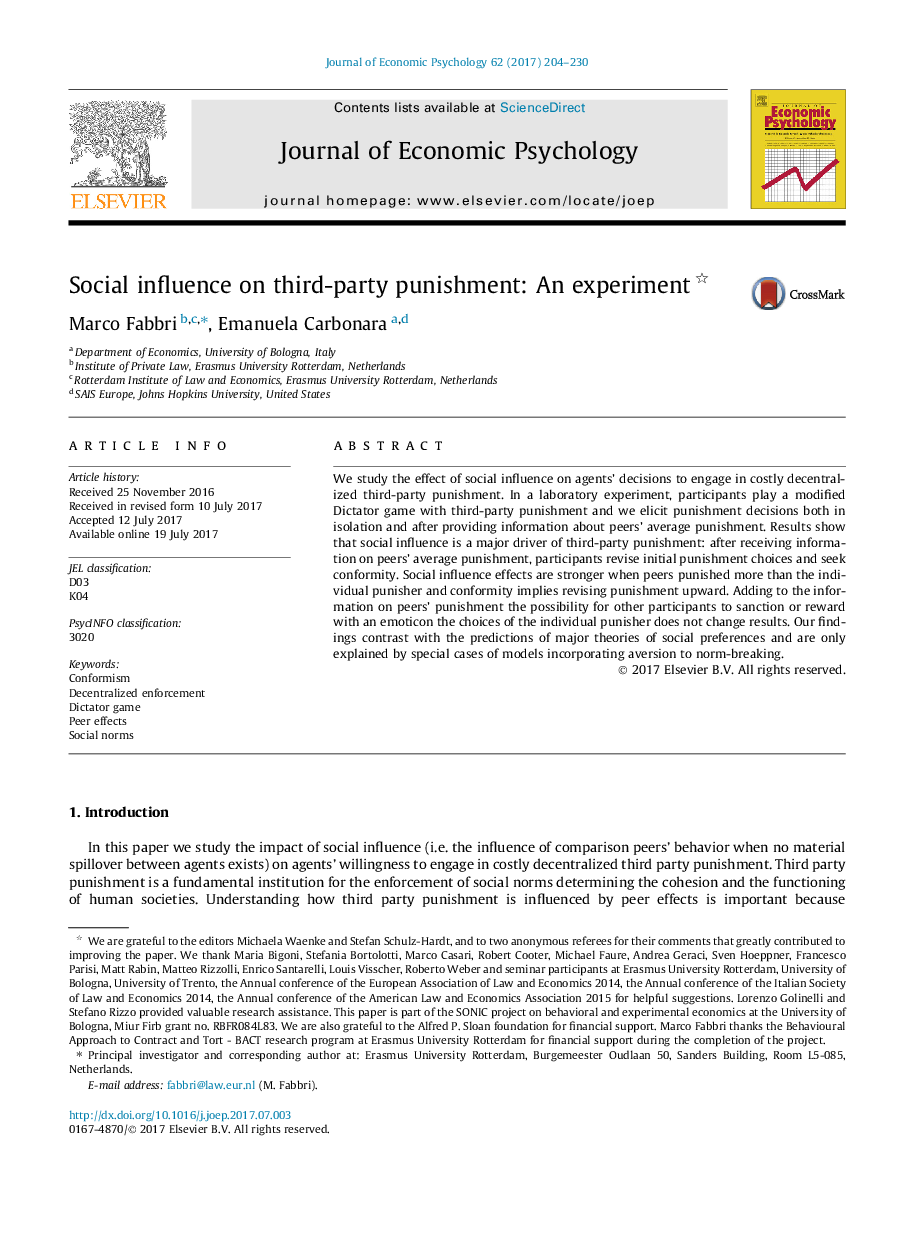| Article ID | Journal | Published Year | Pages | File Type |
|---|---|---|---|---|
| 5034737 | Journal of Economic Psychology | 2017 | 27 Pages |
â¢In a laboratory experiment we study social influence effects on costly third-party punishment.â¢In a Dictator game, third parties punish dictators in isolation and after observing peers' average punishment.â¢Social influence is a major driver of agents' third-party punishment decissions.â¢The effects of social influence are higher when conformity implies increasing individual punishment.â¢Norm-abiding theories are better equipped to explain the findings.
We study the effect of social influence on agents' decisions to engage in costly decentralized third-party punishment. In a laboratory experiment, participants play a modified Dictator game with third-party punishment and we elicit punishment decisions both in isolation and after providing information about peers' average punishment. Results show that social influence is a major driver of third-party punishment: after receiving information on peers' average punishment, participants revise initial punishment choices and seek conformity. Social influence effects are stronger when peers punished more than the individual punisher and conformity implies revising punishment upward. Adding to the information on peers' punishment the possibility for other participants to sanction or reward with an emoticon the choices of the individual punisher does not change results. Our findings contrast with the predictions of major theories of social preferences and are only explained by special cases of models incorporating aversion to norm-breaking.
